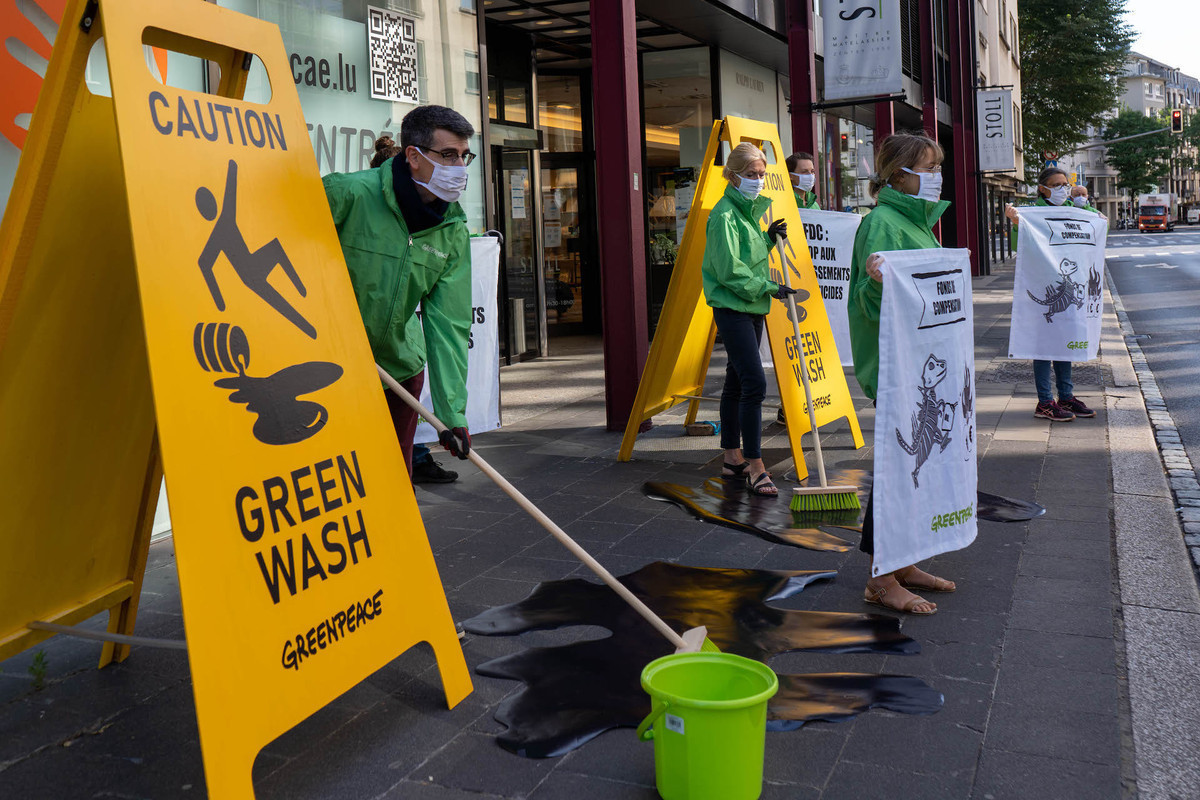Greenpeace earlier this week accused the fund of greenwashing, saying it had invested more than €3bn out of its €26bn portfolio in industries that damage the climate and environment, nuclear power companies, and businesses violating human rights due diligence standards.
“It is crucial to acknowledge that investment decisions are complex and multifaceted, involving considerations such as financial returns, risk management and legal obligations,” the FDC said in a statement to Delano. “Implementing sustainable investment practices into investment decisions is just as complex and challenging, but essential.”
The fund at the end of last year had adopted a new investment strategy for the period from 2023 to 2027, but Greenpeace said it doubts the document will make investments greener and served to deceive the public on claims of sustainability.
The environmental activists’ analysis said the fun invested €888m into carbon majors last year, up 6.6% compared to the year before. Investments in companies involved in deforestation grew from €137m in 2021 to €143m last year, the group said. However, investments in nuclear power fell by 13% to €691m.
The Fonds de compensation was created in 2004 to gain revenue from the pension system’s excess funds. The contributions by private sector workers are divided into covering costs for pensions being currently paid out and reserves managed by the FDC. Public sector workers’ pensions are managed through a separate system.
Pressure from parliament
The FDC in its statement said it recognises Greenpeace’s dedication to the environment, adding that it understands the group’s “disappointment regarding some of our investments, and want to assure you that we take these concerns seriously and are actively working towards addressing them.”
The FDC in December 2020 published its first ever . While the fund said it is little exposed to climate financial risks and stranded assets, it exceeds its carbon budget to keep the increase of the Earth’s warming below 2°C by 13%.
That same month, members of parliament urging the government to analyse how environmental, social and governance (ESG) criteria could be implemented more consistently in the fund’s investment strategy.
A second motion adopted in February this year, reiterated calls to ensure the FDC aligns its strategy with the Paris agreement targets and ESG criteria. It also said the FDC should favour investments in the energy and environmental transition and adopt a strategy to divest from nuclear energy producers and companies that cannot show a pathway to meeting the Paris goals.
Second climate assessment in 2024
“On 31 March 2023 the government decided to heed the call and accept the chamber’s proposal,” a spokesperson for the social security ministry said. “Some points must be hammered out in more detail, such as divestments from nuclear energy.”
The demands by lawmakers will be integrated in the investment strategy, the spokesperson said, and will also be defended by the state’s representatives who sit on the FDC’s board. The state, employee and employer groups are represented with four members each on the board of directors.
The fund itself said it already has divested from more than 150 companies based on human and labour rights, environmental, corruption and controversial weapons criteria. “We have one of the largest exclusion lists compared to our peers,” the statement said. The FDC invests in around 5,700 entities in total.
The pension fund blacklists companies from investment based on an analysis by Sustainalytics, an ESG research and data firm, which screens more than 25,000 companies, according to its website. The exclusion list is updated twice a year.
As part of its strategy, ESG and sustainable factors are “systematically evaluated and considered alongside financial performance.” The fund also wants to leverage its influence as shareholder in the companies it invests in to push for change, it said.
A second climate assessment is due in 2024. “Progress takes time,” the statement said.
Dwindling reserves
The FDC ended last year on a negative performance of -12.78%, its annual report shows, “underperforming its strategic benchmark.”
The fund reduced its exposure to Russia to zero between December 2021 and the end of last year. Geopolitical tensions, inflation, low growth and expansionary monetary and fiscal policy resulted in “a difficult year for investors.”
It newly invested €480m last year but with a capital loss of €3.17bn, net assets declined to €21.91bn, down €2.69bn compared to 2021. The reserves are enough to cover more than four years’ of pension payments if no-one paid into the system anymore.
But these reserves are set to dwindle over the coming years. Already by 2030, there will be fewer than two active employees per pensioner. The ratio is currently 2.5 workers for one pensioner.
The reserve could from 4.8 years of contributions to just 1.5 between 2039 and 2043 and be fully used up between 2045 and 2048.
Social security minister Claude Haagen (LSAP) said last year that the government and social partner must “address this essential subject so that all generations can benefit from a pension system that offers adequate protection.”
Proposal for draft law
Members of parliament in February had largely agreed that the FDC’s legal framework should change to improve its sustainable credentials. However, this was finally not picked up in the motion adopted by lawmakers.
Déi Lénk already in 2020 had submitted a proposal to reform the law regulating the pension fund. This includes the creation of an ethics committee to oversee the fund as well as new rules for its exclusion list to cover entire sectors, such as fossil fuels, tobacco or nuclear power.
